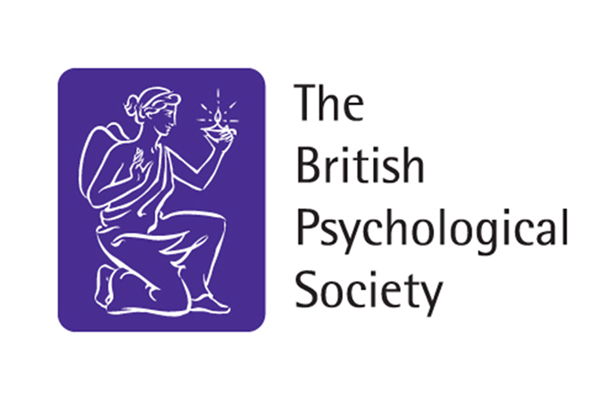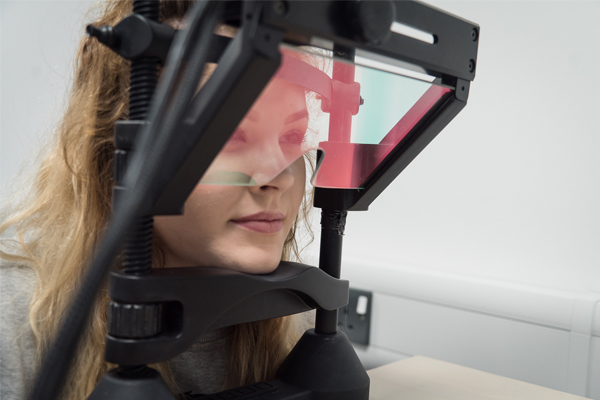Why Choose Lincoln
Accredited by the British Psychological Society
Research links
Teaching delivered by experts in the field
Opportunities to undertake work experience

The MSc in Psychological Research Methods is intended for students interested in pursuing a research career in psychology and related areas, including those planning to go on to complete a PhD. Students will have the chance to cover a broad range of psychological research methods which could be used to address real-world problems in human behaviour, perception, cognition and emotion.
The programme is also suited to students from a non-psychology background wishing to consider a career in psychology, as the programme is accredited by the British Psychological Society to confer the graduate basis for chartered membership.
The programme is distinctive in its focus on applied research methods and the extent to which it draws upon the unique research interests, expertise, and experience of staff members in the School.
Accredited by the British Psychological Society
Research links
Teaching delivered by experts in the field
Opportunities to undertake work experience

You will study a broad range of research methods in psychology with a focus on quantitative techniques in core modules.
The thesis module enables you to specialise in a particular area of psychology research alongside an academic supervisor of your choice and optional modules such as the advanced internship allow you to gain further in depth experience of specialist areas.
Teaching is predominantly delivered on two days per week for full-time students, with part-time students expected to be mostly present for one day per week. Delivery times are subject to time tabling constraints.
As with all postgraduate level study, the programme also involves a significant proportion of independent study.
You will also be expected to complete research for your thesis, which is a great opportunity to further explore an area of research which is of particular interest to you or aligned to your research goals.
This course has links to the School of Psychology's Perception, Action, and Cognition research group who investigate topics such as face perception, neural plasticity, sleep, and human to dog emotion communication.
Explore Research Group.jpg)
† Some courses may offer optional modules. The availability of optional modules may vary from year to year and will be subject to minimum student numbers being achieved. This means that the availability of specific optional modules cannot be guaranteed. Optional module selection may also be affected by staff availability.
We want you to have all the information you need to make an informed decision on where and what you want to study. In addition to the information provided on this course page, our What You Need to Know page offers explanations on key topics including programme validation/revalidation, additional costs, contact hours, and our return to face-to-face teaching.
This programme is accredited with the British Psychological Society (BPS) and for those with BPS Graduate Basis of Chartership (GBC), acts as Stage 1 training towards becoming a Chartered Forensic Psychologist.

The Sarah Swift Building is the home of the School of Psychology, and the building houses specialist teaching and research spaces, as well as general teaching and learning facilities for the wider University. The School of Psychology's research facilities include a sleep lab, Lincoln Infant and Child Development Lab, a motor lab, an imagination and decision lab, an eye tracking lab, an EEG lab, and a TMS lab, as well as many other general purpose lab facilities.

Assessments vary from research proposals, to research reports, essays, and presentations.
The University of Lincoln's policy on assessment feedback aims to ensure that academics will return in-course assessments to students promptly - usually within 15 working days of the submission date.
Postgraduate study is an investment in yourself and your future. It can help you to further or completely change your career, develop your knowledge, enhance your salary, or even prepare you to start your own business. This programme is particularly suited to you if you are considering completing a PhD in psychology or working in psychological research.
The course can also provide you with the chance to learn fundamental analytical, organisational, and presentational skills which could be applied across a range of careers.
I loved that various topics were taught by experts in the field and teaching was based on direct experience. As an international student I received extra support from my tutor, which helped me adjust academically and complete my assessments on time. The course gave me more confidence in writing, as well as an appreciation of critical thinking and ethics in research. Overall, the Psychological Research Methods course was a great experience.
Nenpan Gowon
MSc Psychological Research Methods
Postgraduate Application Support
Applying for a postgraduate programme at Lincoln is easy. Find out more about the application process and what you'll need to complete on our How to Apply page. Here, you'll also be able to find out more about the entry requirements we accept and how to contact us for dedicated support during the process.
How to Apply
The admissions criteria for the programme are a minimum 2:2 undergraduate degree and the equivalent to a C in GCSE maths. Applicants with non-standard entry requirements will also be considered, including those with relevant experience (for example, mature students with work experience). These applicants will be requested for additional information to assess their aptitude for the programme and are invited for interview.
Applicants may be interviewed before they are accepted on the course, to make sure that they are suitable for the course. Students can study this programme either full-time (one year), or part-time (normally two years).
If you have studied outside of the UK, and are unsure whether your qualification meets the above requirements, please visit our country pages for information on equivalent qualifications:
https://www.lincoln.ac.uk/home/studywithus/internationalstudents/entryrequirementsandyourcountry/ for information on equivalent qualifications.
Overseas students will be required to demonstrate English language proficiency equivalent to IELTS 6.0 overall, with a minimum of 5.5 in each element. For information regarding other English language qualifications we accept, please visit the English Requirements page:
If you do not meet the above IELTS requirements, you may be able to take part in one of our Pre-session English and Academic Study Skills courses. These specialist courses are designed to help students meet the English language requirements for their intended programme of study.
You will need to have funding in place for your studies before you arrive at the University. Our fees vary depending on the course, mode of study, and whether you are a UK or international student. You can view the breakdown of fees for this programme below.
The University offers a range of merit-based, subject-specific, and country-focused scholarships for UK and international students. To help support students from outside of the UK, we offer a number of international scholarships which range from £1,000 up to the value of 50 per cent of tuition fees. For full details and information about eligibility, visit our scholarships and bursaries pages.
For each course you may find that there are additional costs. These may be with regard to the specific clothing, materials or equipment required, depending on your course. Some courses provide opportunities for you to undertake field work or field trips. Where these are compulsory, the cost for the travel, accommodation and your meals may be covered by the University and so is included in your fee. Where these are optional you will normally (unless stated otherwise) be required to pay your own transportation, accommodation and meal costs.
With regards to text books, the University provides students who enrol with a comprehensive reading list and you will find that our extensive library holds either material or virtual versions of the core texts that you are required to read. However, you may prefer to purchase some of these for yourself and you will be responsible for this cost.
Postgraduate Funding Options
Find out more about the optional available to support your postgraduate study, from Master's Loans to scholarship opportunities. You can also find out more about how to pay your fees and access support from our helpful advisors.
Explore Funding Options
If you would like further information about this course you can contact the Programme Lead.
Tim Hodgson
To get a real feel for what it is like to study at the University of Lincoln, we hold a number of dedicated postgraduate events and activities throughout the year for you to take part in.
Upcoming Postgraduate Events